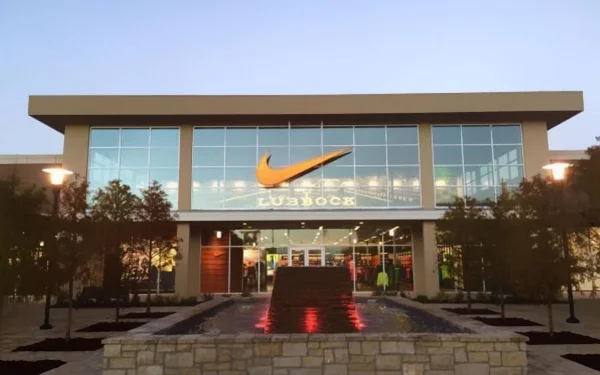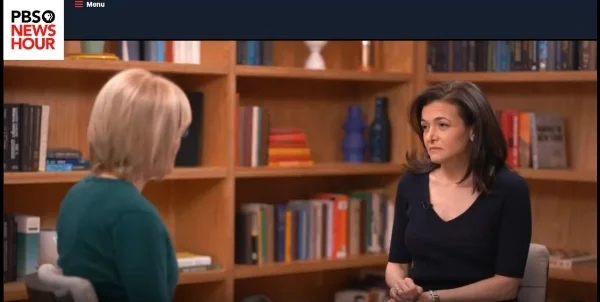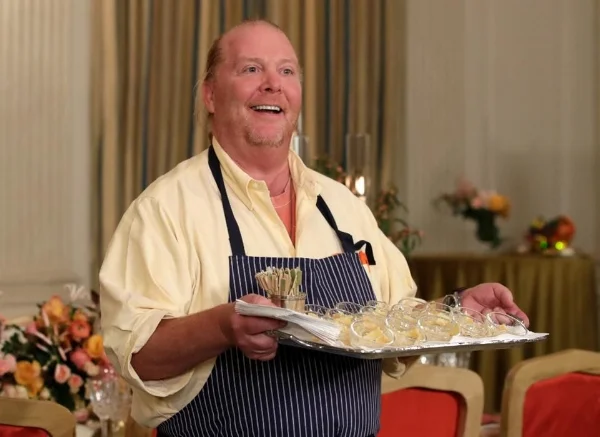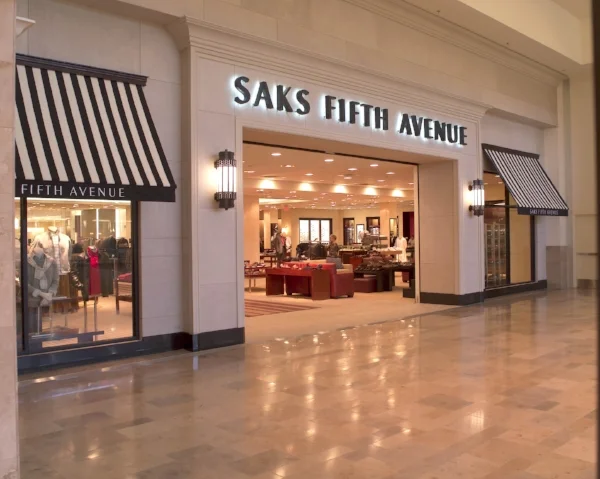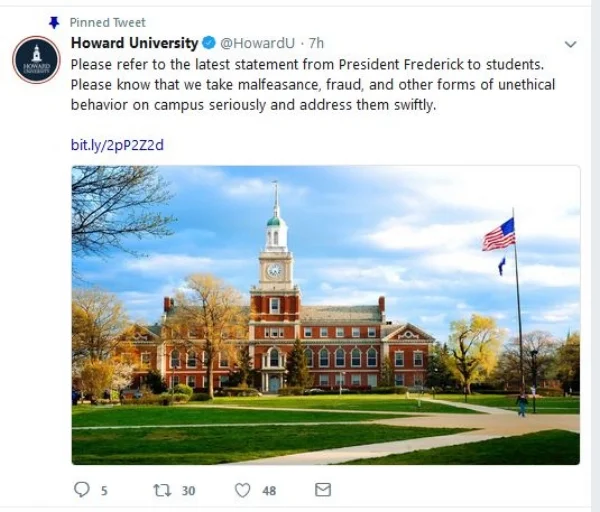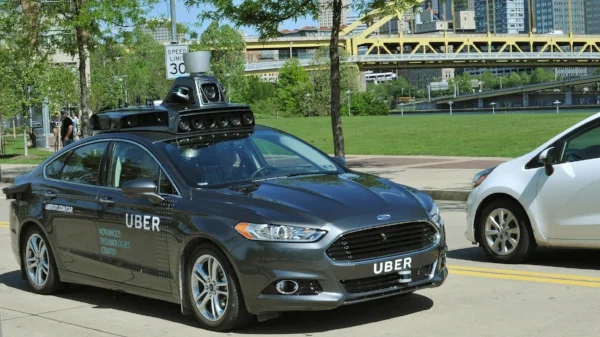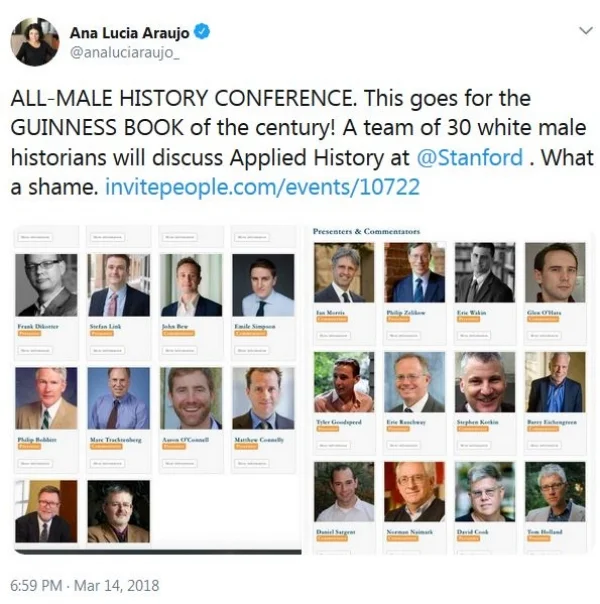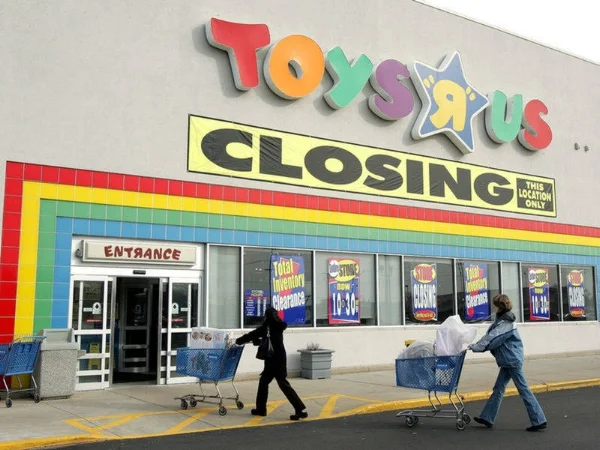Volkswagen Replaces Chairman
Three years after the emissions scandal, Volkswagen is replacing another chairman. Matthias Müller replaced Martin Winterkorn, who was ousted soon after the news broke in 2015. But Müller was another insider and hasn't led the turnaround the board expected.
Like Winterkorn, Müller struggled with public relations. During a 2016 NPR interview, Müller claimed the company misunderstood the American environmental law: “We didn’t lie. We didn’t understand the question [at] first.” After much criticism, VW’s communications department asked for another interview, which was granted. He delivered a better apology but blamed the first interview on “all these colleagues of yours and everybody shouting.” In other words, it was noisy.
As is customary in corporate change announcements, Chairman of the Supervisory Board Hans Dieter Pötsch spoke positively about the outgoing executive:
“Matthias Müller has done outstanding work for the Volkswagen Group. He assumed the chairmanship of the Board of Management in the fall of 2015 when the Company faced the greatest challenge in its history. Not only did he safely navigate Volkswagen through that time; together with his team, he also fundamentally realigned the Group’s strategy, initiated cultural change and, with great personal commitment, made sure that the Volkswagen Group not just stayed on track but is now more robust than ever before. For that, he is due the thanks of the entire Company.”
The new chairman, Dr. Herbert Diess, offers more hope. Diess joined the board in 2015 and is known for having conflicts with the union and for cost-cutting. He may shake up the status quo at VW and inspire real action. The company has aggressive plans, including building greener cars—for real this time.
Image source (VW cover).
Image source (Diess).
Discussion:
- Assess the company's statement about this change. Who are the primary and secondary audiences? What are the communication objectives? How well does the statement meet those objectives?
- Why do these statements typically include positive quotes about outgoing executives, even if they are asked to leave or, as this statement indicates, they leave "by mutual agreement"?
- What lessons do you think Volkswagen learned since the scandal?
- Why would the board appoint someone who is considered divisive?
Mariah Carey Talks About Having Bipolar Disorder
In 2001, singer Mariah Carey learned she had bipolar disorder, and now she is admitting it to the world. In an People magazine cover story, Carey talks about her initial denial and her decision to open up about her diagnosis:
“Until recently I lived in denial and isolation and in constant fear someone would expose me. It was too heavy a burden to carry and I simply couldn’t do that anymore. I sought and received treatment, I put positive people around me and I got back to doing what I love — writing songs and making music.”
“I’m just in a really good place right now, where I’m comfortable discussing my struggles with bipolar II disorder. I’m hopeful we can get to a place where the stigma is lifted from people going through anything alone. It can be incredibly isolating. It does not have to define you and I refuse to allow it to define me or control me.”
Bipolar disorder, also called manic-depressive disorder, affects about 5.7 million adults in the U.S., which is about 2.6% of the population.
Reactions to the news seem mostly positive, with comments such as this on Twitter:
This story reminds me of a TedX talk, "Everyone Is Hiding Something" about a woman's struggle with an eating disorder.
Discussion:
- What are the potential personal and professional consequences to Mariah Carey of going public with her diagnosis?
- What do you hide about yourself that might be useful for others to know?
- What is the value of admitting personal struggles in the workplace?
- How does Mariah Carey's story demonstrate leadership character dimensions, such as courage, compassion, authenticity, and vulnerability?
Zuckerberg Testifies Before Congress
In many hours of testimony, Facebook CEO Mark Zuckerberg did his best to address lawmakers' questions about data privacy and, surprisingly, how Facebook works. Senators and Members of Congress asked questions about texting, about how the company makes money without a subscription model (Zuckerberg: "We sell ads."), whether Facebook owns users' data, whether Facebook sells data, how many "data categories" Facebook collects, and so on. This video compilation does not reflect well on our lawmakers.
Zuckerberg himself seemed surprised by some of the questions and wasn't fully prepared to answer them. A reporter captures a photo of Zuckerberg's notes, which are what we would expect, but it's fun (in a voyeuristic way) to see them.
On the second day of testimony, questions improved, and many focused on Facebook's treatment of conservative political views. These were fair questions, and Zuckerberg admitted they had made mistakes in screening some content as inappropriate. But several representatives seemed to ask similar questions about this and about the consent agreement with the FCC, as if the question hadn't been asked just moments earlier.
In a New York Times Daily Podcast, reporters discussed Zuckerberg's continued references to starting Facebook in his dorm room. They believed the strategy was a good one for demonstrating his humanity (emotional appeal) but was potentially damaging for his credibility because it reminded lawmakers that he is only 33 years old. A seat chair, which internet trolls called a "booster seat," didn't help.
Wall Street responded well to Zuckerberg's testimony, with the stock price rising both days.
Discussion:
- What's your view of Zuckerberg's testimony? Watch as much as you can tolerate.
- Should lawmakers have a better understanding of Facebook? What is their level of responsibility?
- Identify a few specific questions and Zuckerberg's answers. What leadership character dimensions does he demonstrate, and how could he have improved?
- Watching the testimony, how would you assess his authenticity? Do you know more about him as a person? Should we?
Howard University Reports on Misappropriated Funds
Howard University's investigation has concluded that $369,000 had been misappropriated by six employees who were terminated last year. A full report by the university identifies how they "double dipped" by receiving both tuition assistance and university grants between 2011 and 2016.
In a cover letter to the report, President Wayne A.I. Frederick wrote, “Howard University is committed to uncovering any impropriety in the administration of university-provided financial aid and federal student aid, to remediating all problems identified during this investigation, and to maintaining a robust compliance program to prevent any inappropriate dealings in the administration of financial aid."
A Washington Post article reports that the university tried to avoid going public before the review was completed, but an article posted online made this impossible. Student protests, which went on for more than a week, also may have sped up the timing.
Discussion:
- What business writing principles does the report demonstrate and fail to demonstrate? How could the report be improved?
- Assess the president's cover letter. Who are his primary and secondary audiences, and what are the communication objectives? How well does the letter achieve those objectives?
- What can the university do now to restore trust?
- How well does the university take responsibility for the situation?
Nike Memo Describes Diversity Failings
The head of HR at Nike wrote a memo describing how the company has not lived up to plans to promote women and people of color. Nike has been grappling with complaints about its "boys-club culture," and the memo may have worsened the situation.
When complaints surfaced, Chief Executive Mark Parker said, “When we discover issues, we take action. We are laser-focused on making Nike a more inclusive culture and accelerating diverse representation within our leadership teams."
Weeks later, HR Chief Monique Matheson wrote in the memo that the company wants to “to create a culture of true inclusion. As part of our plan, we need to improve representation of women and people of color.” She also wrote, “While we’ve spoken about this many times, and tried different ways to achieve change, we have failed to gain traction—and our hiring and promotion decisions are not changing senior-level representation as quickly as we have wanted."
Of Nike's 74,000 employees, only 29% of vice presidents are women and, in the U.S., only 16% are nonwhite. In the memo, Matheson also reported that men, women, and people of color earn about the same, although she acknowledged, "We’ve also heard from some of you that this result does not reflect your personal experience" and promised to do more research into pay equity.
Discussion:
- How does the memo reflect both positively and negatively on Nike?
- Should Matheson have avoided putting such information in a memo, knowing that it could be made public? Or, do you think she intended for it to go public?
- How do executives balance internal communication and the possibility of messages being leaked to the press?
- In what ways does this situation demonstrate vulnerability?
An Interview with Sheryl Sandberg
During an interview with Judy Woodruff on PBS NewsHour, Facebook COO Sheryl Sandberg admitted mistakes and discussed plans for improving users' privacy. Sandberg didn't shy away from tough questions about Facebook's role in protecting users' information and admitted that the site had an important role during the 2016 presidential election, at least to get people to register to vote.
On whether Cambridge Analytica still has data, Sandberg admitted, "We were given assurances by them years ago that they deleted the data. We should’ve followed up. That’s on us. We are trying to do a forensic audit to find out what they have." She also said the company had "under-invested" in ways to protect users' information.
Viewers may notice that Sandberg repeatedly says versions of "That's a very good question." This could be a tactic to delay responding, or it could be that Woodruff asks good questions! Sandberg would be the first to acknowledge that many of the questions are ones the company leaders are asking themselves at this point. As pioneers, Facebook executives are reconsidering how people use the site and for what purpose.
Discussion:
- Assess Sandberg's presentation skills. How well does she deliver her ideas and address questions?
- What principles of persuasion does Sandberg demonstrate in the interview?
- What else, if anything, could Sandberg have said during this interview to rebuild trust in the company?
Mario Batali Wants to Move On
Is it too soon? Mario Batali, accused of sexual harassment and removed from the company bearing his name, is exploring a new venture. In December, reports of sexual misconduct rattled the Batali & Bastianich Hospitality Group, and Batali admitted that accusations “match up with ways” he behaved. At the time, he emailed an apology but lost ground when he included a "P.S." with a recipe for making cinnamon rolls.
Now, about four months later, people report that Batali is exploring his options. Reports say he is considering moving to the Amalfi Coast, aiding displaced Rwandans, or creating a new company.
A New York Times article speculates that Batali may be in a good position to return to public life:
He still has legions of fans and colleagues who admire and respect his generosity, culinary knowledge and charisma. Many still post their interpretations of his recipes on Instagram, ask him for selfies on the street or urge his return to “The Chew” on Facebook. His restaurants continue to attract customers.
Friends also say that he is truly taking time to be introspective and to learn from his mistakes. But not everyone agrees that a comeback would be appreciated. Anthony Bourdain, for example, isn't ready:
Retire and count yourself lucky, I say that without malice, or without much malice. I am not forgiving. I can’t get past it. I just cannot and that’s me, someone who really admired him and thought the world of him.
Discussion:
- What's your view? Is it too soon, or is the time right for a Batali return? What should he consider in making this decision? What are the potential implications for women who complained about his behavior and for the company?
- Batali mentions wanting to understand his "blind spots." What does he mean by this?
Major Retailers Respond to Data Breach
Retailers Saks Fifth Avenue and Lord & Taylor experienced a data breach affecting about 5 million customers. Hackers JokerStash Syndicate (also known as Fin 7) stole and resold credit and debit card information retrieved during the sales process.
Both companies are owned by Hudson's Bay Co., and we see that their customer messages have been coordinated. On both retailers' websites, text appears at the top of the page in a yellow box. When you click on the "Important Message" link, you see two statements dated one day apart and a list of FAQs.
The second message is below:
April 2, 2018 Statement
Updated Statement
We recently became aware of a data security issue involving customer payment card data at certain Saks Fifth Avenue, Saks OFF 5TH, and Lord & Taylor stores in North America. We identified the issue, took steps to contain it, and believe it no longer poses a risk to customers shopping at our stores. While the investigation is ongoing, there is no indication that this affects our e-commerce or other digital platforms, Hudson's Bay, Home Outfitters, or HBC Europe. We deeply regret any inconvenience or concern this may cause.
We wanted to reach out to our customers quickly to assure them that they will not be liable for fraudulent charges that may result from this matter. Once we have more clarity around the facts, we will notify our customers quickly and will offer those impacted free identity protection services, including credit and web monitoring. We encourage our customers to review their account statements and contact their card issuers immediately if they identify activity or transactions they do not recognize.
We are working rapidly with leading data security investigators to get our customers the information they need, and our investigation is ongoing. We also are coordinating with law enforcement authorities and the payment card companies. For further information, please visit https://www.saksfifthavenue.com/security-information/notice.html, https://www.saksoff5th.com/security-information/notice.html, or https://www.lordandtaylor.com/security-information/notice.html. To speak with a dedicated call center representative, beginning April 4, 2018, you can call 1-855-270-9187, Monday - Saturday, 8 am - 8 pm CT.
Discussion:
- Read the statements on the retailers' websites. Identify the primary and secondary audiences and communication objectives.
- How well do the statements achieve their objectives? What else, if anything, should the companies communicate at this point?
- To what extent are the retailers holding themselves accountable for the breach?
Heineken Pulls "Lighter Is Better" Ad
Heineken seemed to be playing with fire in a new beer ad, "Sometimes, Lighter Is Better." The commercial shows a bartender sending a light beer to a light-skinned woman. On its way down the bar, the beer passes darker-skinned people. The promotion was for 99-calorie Heineken Light.
Chance the Rapper is one of many who called the ad racist, and he accused the company of intentionally trying to attract attention.
An AdAge article explains that the ad traveled from Europe last summer, where it received little attention, to the recent release in the U.S. As one agency owner explains, "What sometimes is acceptable in Europe isn't acceptable in the U.S. and I think that a lot of time the failure comes in not really evaluating the impact that it is going to have in a particular region."
Heineken pulled the ad, and spokesman Bjorn Trowery published a statement:
"For decades, Heineken has developed diverse marketing that shows there’s more that unites us than divides us.
"While we feel the ad is referencing our Heineken Light beer—we missed the mark, are taking the feedback to heart and will use this to influence future campaigns."
Discussion:
- Would you call the ad racist? Why or why not?
- Do you think Heineken intentionally created a controversial ad? What evidence do you find either way?
- How is this an issue of authenticity and integrity for the company?
Howard University Responding to Embezzlement
Six student employees were terminated by Howard University for embezzling financial aid funds. The students made up fake scholarships and found other ways to steal what could be more than $1 million.
On Twitter, the student association unleashed its frustration with the university's response. In a statement, President Wayne Frederick expressed empathy for this frustration and for other reactions:
Hearing about the mishandling of funds at the University can be difficult to process. I can also understand how upsetting it is to feel that the University has not communicated with you regarding this incident. The goal established at the onset of this investigation was to conduct it in a confidential manner that ensured a thorough examination of the issues without jeopardizing the integrity of the findings. However, that does not mitigate the sense of mistrust that many students and members of our community feel right now. We understand that and we hear you.
The statement also describes plans for investigating the charges and ends on a positive note.
Discussion:
- The above paragraph from the president's statement raises an interesting conundrum: how do leaders ensure both privacy and transparency? The same issue is relevant to investigating sexual harassment claims. What are your thoughts? How, if at all, is it possible to achieve both?
- Assess the president's statement. Who is the audience, and what are the communication objectives? How is the statement organized? How would you describe the writing style, tone, and so forth?
- How well does the president's statement demonstrate accountability?
Advisor at Morgan Stanley Accused of Abuse
A New York Times article chronicles abuse allegations of a financial advisor and Morgan Stanley's decision to retain him. Douglas E. Greenberg is a member of the firm's “Chairman’s Club,” which recognizes top producers who meet identified "conduct and compliance standards.”
But, for years, Morgan Stanley executives knew of allegations of abuse against Greenberg—not by employees but by four women who had relationships with him and had sought protection against him. Greenberg has also been charged with violating restraining orders.
You may be thinking that these external relationships should not impact Greenberg's job. The article presents a different perspective:
But employees in the finance industry—especially those who manage money for clients—are judged in part on their character. That puts the onus on companies, and regulators, to police their conduct even outside the office.
Only after an inquiry from a Times reporter did the company place Greenberg on administrative leave. A spokesperson said, "We are committed to maintaining a safe and professional work environment and will take appropriate action based on the facts of the matter.”
Discussion:
- How could Greenberg's behavior affect the firm?
- What's your view of Greenberg's position at the firm? What should the executive team do?
- How is this situation a potential matter of integrity for Morgan Stanley?
Defense for Rudeness: "I'm French"
A waiter in at Milestones Bar + Grill in Vancouver, British Columbia, was fired for being rude. Guillaume Rey doesn't argue the point, but he has filed a lawsuit claiming his termination is discriminatory.
As part of the suit against the parent company, Rey said the decision was "discrimination against my culture," which “tends to be more direct and expressive." On the other hand, Rey signed documentation with the restaurant that states, “intentionally speaking to a Guest or Associate in a rude or unfriendly manner" may be cause for termination.
The restaurant tried to get the case dismissed but failed. A judge explains the ruling:
Given that there is at least some evidence supporting an inference that Mr. Rey’s ancestry was a factor in the termination, and given how little other information I have about what happened, I cannot find that the Restaurant has met its burden on this application.
Discussion:
- Read the court's findings. What were the restaurant's arguments? What are Rey's arguments?
- Do you agree with the judge's decision at this point? Why or why not?
- How does this situation demonstrate humility or a lack of humility?
How to Talk About Failure During an Interview
A new podcast, Change Agent, explores creative solutions to people's problems. In one episode, "Telling the Truth," a recovering alcoholic talks about her challenges during job interviews. Should she explain the gap in her resume?
For help, the moderator looks to Domino's, which had notoriously bad reviews of its pizza. CEO J. Patrick Doyle explains how the company took an open approach to admitting failure. Doyle led a turnaround by running commercials admitting criticism about their pizza, for example, that the crust "tastes like cardboard." The results are documented in a Domino's video posted on YouTube.
The woman looking for a job was able to apply what she learned during a mock interview. Part of her recovery process is about being truthful, so was open to the strategy.
During the podcast, we hear the woman admitting her challenges, although she goes on longer than may be useful or appropriate during a job interview. Still, the interviewer reacted positively to her telling the truth.
Discussion:
- What are the risks to admitting failure in this way?
- How could you apply this strategy to your own job search? What failing or misstep could you explain in a way that demonstrates self-reflection and learning from failure?
- In what ways does the podcast demonstrate authenticity and vulnerability?
Profile of a Wells Fargo Whistleblower
Duke Tran was a Khmer Rouge slave in Cambodia when he was 17 years old, but he made his way to the United States and eventually landed a job at Wells Faro. At some point, Tran received phone calls from customers about large payments due on loans ($90,000 and $165,000). In both cases, the customers said they didn't have a loan with the bank, and Tran couldn't find any documentation. When Tran asked his supervisor what to do, he was told, "It’s no problem. If the customer calls back, you tell them it’s a balloon [due all at once]." Tran refused to lie to the customers and got fired: “I told him this is a fraud. I cannot be a part of that. He got upset."
This is one of many stories of retaliation against whistleblowers at the company, but Tran persisted. Rather than fight for his job back, Tran wanted the bank to admit wrongdoing. A New York Times article describes what Tran went through:
To further his lawsuit, he opened his life to intense scrutiny, used vacation time at his new job to attend meetings and court dates, and told and retold the story of his experiences at the bank, which maintained that Mr. Tran had been fired for poor performance and that there had been no cover-up of missing documents. He would not go away. . .
He couldn’t sleep. He couldn’t bring himself to tell his wife, Ann, and their sons, Justin and Jimmy, that he had been fired. When they asked why he wasn’t going to work in the mornings, Mr. Tran said he was on vacation. When that excuse no longer seemed plausible, he invented another.
“I thought, my God, I’ve lost my American dream,” he said.
His wife worked in a dental equipment factory. She earned $17 per hour, and it was suddenly the family’s only income.
Although he didn't want to, Tran eventually settled for what is estimated to be "seven figures."
Cover image source. Page image source.
Discussion:
- Which character dimensions does Tran most demonstrate?
- When have you been in a situation where you had to decide whether to speak out against a company practice? What was your decision process? How did it turn out?
- HR told Tran he was fired for not responding to a customer whose call he had taken. How is this problematic?
Old and New Email Advice
The Wall Street Journal reports on new research that may improve business professionals' efficiency and reduce stress. We already know some of the email advice, but the article adds nuance to some decisions. For example, most people know to avoid all caps because it looks as though you're yelling. But one study shows that "AND" or "BUT," for example, can "provide emphasis, communicate urgency, or inject humor."
Older advice still stands, for example, to avoid answering too quickly and sending messages after work hours. Obsessively checking one's inbox is still a problem for many people, so closing email applications and scheduling times to check (for example, once every 45 minutes) is a better choice. Otherwise, incoming email interrupts work, and it takes people about a minute to get back to where they were.
The article also warns against using emoticons or emojis when you don't know the receiver well. Readers tend to judge these writers as incompetent. But go ahead and use them for internal communication, particularly within teams of people who know each other well.
New research about timing may help business professionals get the response they want. People respond most quickly to emails earlier in the week and earlier in the day, so sending an email on Monday between 8 am and noon may be a better choice than, say, Friday afternoon.
Discussion:
- What are your biggest challenges with email? How have you overcome them?
- As a reader, what, if any, aspects of emails that cause you to judge the intelligence or competence of the sender?
FB Admits Mistakes and Makes Promises
After five days of silence, Facebook CEO Mark Zuckerberg is addressing new criticism about privacy issues. Recent reports describe how Cambridge Analytica used data from about 50 million FB users without their permission, possibly to influence voters during the 2016 presidential campaign. Although some users gave permission for their information to be shared, their "friends" didn't, and this gave developers enormous amount of data about people's preferences. In addition, Cambridge claimed it had deleted data in 2014, but new reports indicate it did not.
Now Zuckerberg is visible in the media and has issued a statement that included the company's responsibility and failings:
We have a responsibility to protect your data, and if we can’t then we don’t deserve to serve you. I’ve been working to understand exactly what happened and how to make sure this doesn’t happen again. The good news is that the most important actions to prevent this from happening again today we have already taken years ago. But we also made mistakes, there’s more to do, and we need to step up and do it.
He also told CNN, "I'm really sorry that this happened." He promised to limit developers' access to data in the future.
Facebook also published a full-page newspaper ad in the New York Times on March 25.
Discussion:
- How does this situation represent issues of integrity and trust?
- Read Zuckerberg's full statement. Which parts do you find most and least convincing?
- How is the statement organized? Is this the best approach, or could other organizational strategies have worked better?
- Assess Zuckerberg's writing style. Which principles of business writing are followed, and which are not?
Uber Halts Self-Driving Cars Following Death
A self-driving Uber killed a pedestrian in Tempe, Arizona, and the company is trying to understand what happened. In the meantime, CEO Dara Khosrowshahi posted condolences on Twitter. An Uber spokesperson also made this statement:
“Our hearts go out to the victim’s family. We are fully cooperating with local authorities in their investigation of this incident.”
Apparently, a woman walked suddenly in front of the vehicle, and the local chief of police said, "It’s very clear it would have been difficult to avoid this collision in any kind of mode." A human backup driver, who was in the driver's seat without control over the car, confirmed the report. The first sign of trouble was the actual collision.
As a result of the accident, Uber announced it will stop all testing of autonomous cars. In California, autonomous Ubers were set to launch without human backups, but this may be delayed.
Discussion:
- Assess the company's response to the news. We don't see an apology, per se. Should we?
- How can the company rebuild trust in self-driving cars after this incident?
Facebook Under Scrutiny
Questions about Facebook's role in user privacy are getting increasingly serious, and shareholders are getting worried. Company shares fell 7% after the news that third-parties used FB users' personal information without permission.
Analysts say we know that Facebook monetizes users' data, but the number of people affected (50 million) and the extent of the violation is dramatic. One concern is how much additional regulation the company will face in the future. Already, the Federal Trade Commission (FTC) is investigating whether Facebook violated a 2011 settlement in which the company promised to get users' consent before changing certain privacy settings.
We have no comment yet from Mark Zuckerberg or Sheryl Sanberg, and critics say they need to be out in front of this.
Discussion:
- A Bloomberg reporter called the company "tone deaf," but others say it's an impossible situation to fully address at this point. What's your view?
- What, if anything, should company leaders say? What could explain their silence?
- In what ways is this situation an issue of integrity for the company?
Stanford Event Criticized as "Too White and Too Male"
The organizer of a history conference at Stanford admitted to having trouble identifying a more diverse panel of speakers. All 30 are white men.
Priya Satia, history professor at Stanford said, “Given how prevalent women are in the history department, you’d have to try really hard to come up with a roster of speakers that looks like that." Satia also leads the history department's diversity committee.
Referred to as a "conservative British historian" by the New York Times, Niall Ferguson says he invited women, but only one could attend. Ferguson also said, "We all agreed that we must redouble our efforts to represent diverse viewpoints in future conferences."
Discussion:
- What are some possible reasons for the lack of diversity?
- Should Ferguson have done more to recruit women and people of color? How could he approach the conference planning differently?
- What is Stanford's responsibility? I don't see a statement from the university.
- In what ways does Ferguson demonstrate vulnerability, and in what ways does he fall short?
Toys R Us Closes
https://www.toysrusinc.com/restructuring
Toys R Us will close its remaining 735 U.S. stores and will lay off about 33,000 employees around the country. The company tried to survive after a bankruptcy filing in 2017, but the retailer can't compete with large stores, such as Walmart, and online sellers, such as Amazon.
Critics say Toys R Us failed to generate excitement, as one analyst describes in The Washington Post article:
“The liquidation of Toys R Us is the unfortunate but inevitable conclusion of a retailer that lost its way. Even during recent store closeouts, Toys R Us failed to create any sense of excitement. The brand lost relevance, customers and ultimately sales.”
A professor of brand management echoed this theme:
“We know that customers are willing to pay more for an enjoyable experience — just look at the lines at Starbucks every day — but Toys R Us has failed to give us anything special or unique. You can find more zest for life in a Walgreens.”
New York Senator Chuck Schumer is asking for the Federal Trade Commission (FTC) to ensure that customers aren't left "holding the bag" if they can't cash in or buy products with gift cards, particularly those recently received in December for Christmas.
Toys R Us has only a short statement on its website announcing the liquidation.
Discussion:
- Should the company leaders say more about the decision? What else, if anything, could be included in the statement?
- In addition to legal responsibilities, do company leaders have ethical responsibilities to make good on outstanding gift cards? Why or why not?
- In what ways has the company failed to learn from failure?









